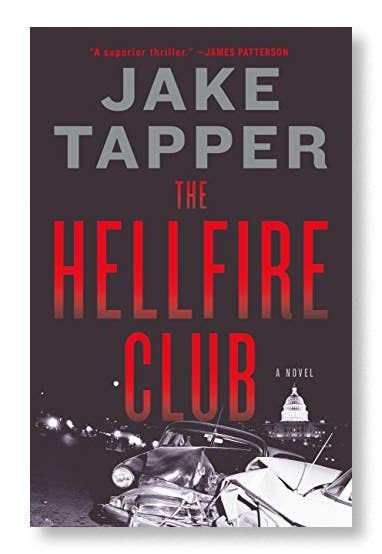
Last month, the lawyer for a Russian businessman suing BuzzFeed over the Trump dossier paused in the middle of my deposition to reveal which, among the thousands of documents we’d turned over in discovery, was his favorite.
The lawyer picked out a furious and colorful email Jake Tapper sent me the night we published the dossier, in which Tapper expressed his disagreement with our decision to publish — and added that, “collegiality wise,” I had done something that he described with an intimate and painful-sounding metaphor.
The email reminded me of two things.
First, that Tapper is an excellent writer.
And second, that one of the great secrets to his professional success is his all-out defense of his reputation on all fronts at all times: Before the Tappergram about the dossier, I’d heard from him more commonly about stray tweets from BuzzFeed staffers about everything from the poop cruise (his own coverage, he wanted to point out, had been serious and policy-focused) to the usual arguments over ratings. No tweet about Tapper, not even a subtweet, falls without Tapper’s notice.
“I don't have time for your high school drama club,” he said recently in his fourth rapid-fire tweet to a BuzzFeed News reporter who had botched, then quickly corrected, a Tapper quote.
Perhaps the best evidence of how fiercely Tapper protects his reputation is that — despite his irascibility being a kind of Washington legend — I can’t find any reference to it in a series of recent glowing profiles of the CNN anchor. These profiles tend to feature a relaxed-looking Tapper, surrounded by red, white, and blue memorabilia. Perhaps his feet are up on his desk. Tapper’s friends and acquaintances were rather surprised to learn, from the lede of a recent Times profile, that “Jake Tapper doesn’t seem to get rattled easily.”
Some of Tapper’s colleagues and Twitter enemies find the heated private responses to criticism over the top, a sign that he takes himself too seriously.
But I’ve always considered this thin skin a positive quality: Tapper should take himself seriously. He has a serious job and has succeeded in part because he’s always engaged critics, including Twitter voices to the right and left of the mainstream television conversation, the kind of critics whom high-profile journalists often ignore. He’s the defining serious TV journalist of the Trump era for a reason.

And it takes a certain kind of seriousness of purpose to dive unapologetically into genre fiction, which Tapper has done in a fun and necessarily somewhat trashy political thriller called The Hellfire Club.
The novel is true to the genre: The story of a deadly conspiracy in Eisenhower’s Washington is rich with period detail, sex, and murder, and boasts not just one but a handful of conspiratorial secret societies.
It has the best qualities of this sort of historical fiction, which include the winking perspective of the present. The protagonist, a young New York congressman named Charlie Marder, has thankfully anachronistic views that make him alive to Washington’s deep racism and gender inequality.
And Joe McCarthy has more than a little Donald Trump in him — full of lies and bluster, yet impossible to ignore: a planet “blocking out the sun.” McCarthy (and later Trump) consigliere Roy Cohn’s peace plan also sounds familiar: “He’d pick up the phone and call Joe Stalin and say, 'This is Joe McCarthy, I’m coming over tomorrow to talk about things…'”
The media is largely absent from the novel. The courageous Walter Cronkite stands out from a mostly tame press corps.
But Tapper’s own anti-politics come through in the novel’s central conflict, and it helped me understand Tapper’s approach as well as anything else he’s said or written. In The Hellfire Club, McCarthy is a monster, ruining lives with careless lies. But Tapper, like the anti-Communist liberals of that day, goes out of his way to stress that the Communist conspiracy was real and that some of the accused — the Rosenbergs and Alger Hiss — were guilty.
“McCarthy’s a drunk but he’s not wrong about everything,” Marder’s father tells him.
Our hero distinguishes himself by avoiding the seduction of either Moscow or the more-than-a-little-fascist Hellfire Club cult of the title, an entertaining fictional updating of an 18th-century sex club whose members, here, include both McCarthy and the Kennedys. The heroic band he joins, in the end, is a third force, a dashing group organized around the president at the time, Dwight Eisenhower, to save the Republic. This nameless force might be confused, in today’s terms, for the Deep State.
The novel is Tapper’s fourth book but his first work of fiction, and while The Hellfire Club might not get glowing blurbs from James Patterson and Shonda Rhimes if it carried a different byline, its quality is a tribute to taking yourself seriously in all things.
CORRECTION
A previous version of this story misstated the century in which the Hellfire Club was formed.
